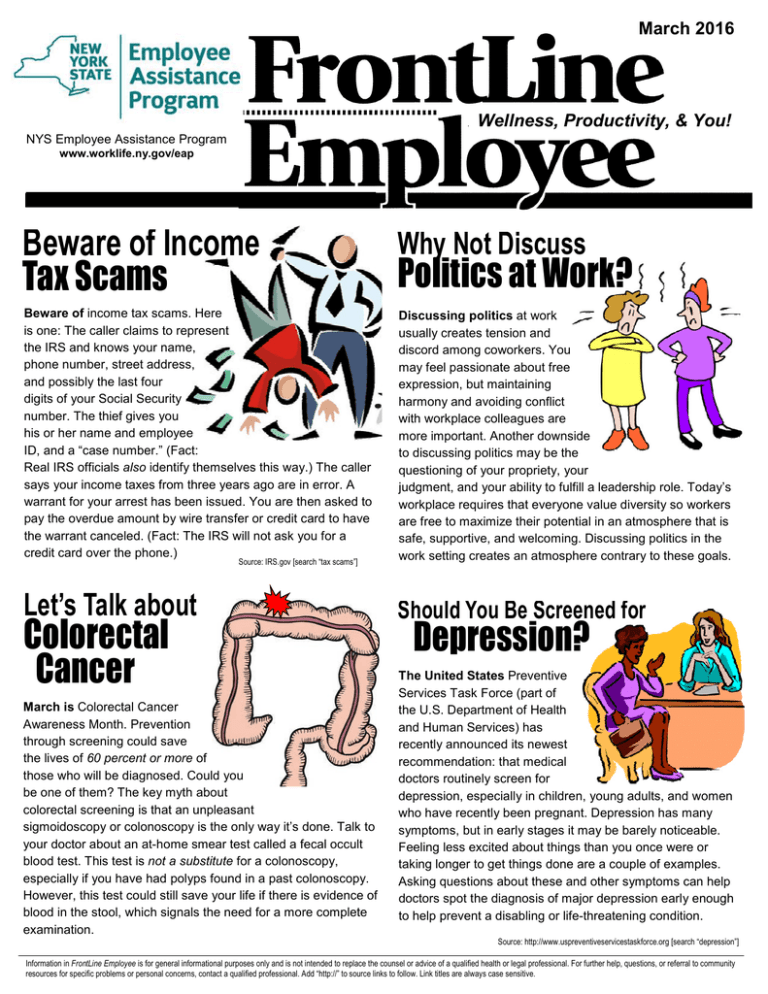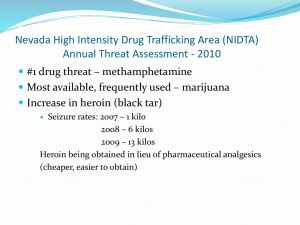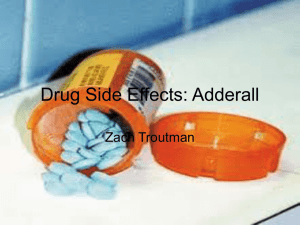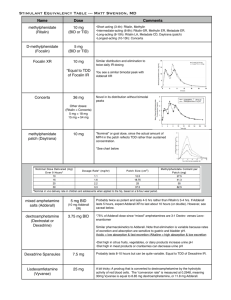Wellness, Productivity, & You!
advertisement

March 2016 Wellness, Productivity, & You! NYS Employee Assistance Program www.worklife.ny.gov/eap Beware of Income Tax Scams Why Not Discuss Beware of income tax scams. Here is one: The caller claims to represent the IRS and knows your name, phone number, street address, and possibly the last four digits of your Social Security number. The thief gives you his or her name and employee ID, and a “case number.” (Fact: Real IRS officials also identify themselves this way.) The caller says your income taxes from three years ago are in error. A warrant for your arrest has been issued. You are then asked to pay the overdue amount by wire transfer or credit card to have the warrant canceled. (Fact: The IRS will not ask you for a credit card over the phone.) Discussing politics at work usually creates tension and discord among coworkers. You may feel passionate about free expression, but maintaining harmony and avoiding conflict with workplace colleagues are more important. Another downside to discussing politics may be the questioning of your propriety, your judgment, and your ability to fulfill a leadership role. Today’s workplace requires that everyone value diversity so workers are free to maximize their potential in an atmosphere that is safe, supportive, and welcoming. Discussing politics in the work setting creates an atmosphere contrary to these goals. Let’s Talk about Should You Be Screened for Politics at Work? Source: IRS.gov [search “tax scams”] Colorectal Cancer Depression? The United States Preventive Services Task Force (part of the U.S. Department of Health and Human Services) has recently announced its newest recommendation: that medical doctors routinely screen for depression, especially in children, young adults, and women who have recently been pregnant. Depression has many symptoms, but in early stages it may be barely noticeable. Feeling less excited about things than you once were or taking longer to get things done are a couple of examples. Asking questions about these and other symptoms can help doctors spot the diagnosis of major depression early enough to help prevent a disabling or life-threatening condition. March is Colorectal Cancer Awareness Month. Prevention through screening could save the lives of 60 percent or more of those who will be diagnosed. Could you be one of them? The key myth about colorectal screening is that an unpleasant sigmoidoscopy or colonoscopy is the only way it’s done. Talk to your doctor about an at-home smear test called a fecal occult blood test. This test is not a substitute for a colonoscopy, especially if you have had polyps found in a past colonoscopy. However, this test could still save your life if there is evidence of blood in the stool, which signals the need for a more complete examination. Source: http://www.uspreventiveservicestaskforce.org [search “depression”] Information in FrontLine Employee is for general informational purposes only and is not intended to replace the counsel or advice of a qualified health or legal professional. For further help, questions, or referral to community resources for specific problems or personal concerns, contact a qualified professional. Add “http://” to source links to follow. Link titles are always case sensitive. . March 2016 FrontLine Employee When Change Comes, Will You Adapt? New Sedative Drug Crisis If “the only thing certain is change,” then a vital life skill is the ability to adapt. Change can come fast, so develop this teachable life skill. Start by asking yourself some questions: (1) When sudden and unexpected change happens, do you quickly consider healthy actions in order to adapt to it with as little delay as possible? (2) Are you willing to be flexible in the choice of actions you must take? (The best choice may not be the easiest or the least stressful in the short run.) (3) Do you decide what you want from the change, which could be something entirely different, and not previously considered, in your life? (This puts you in control of the impact change has on your life, so you are less likely to be a victim of it. As the saying goes, “Make lemonade from lemons.”) (4) Do you plan ahead (think upstream) about strategies for coping with change so you can better skirt the rapids when they appear? (5) Do you strengthen and invest in yourself—build relationships, understand effective communication, attend to personal finance and retirement planning, and nurture your physical, emotional, and spiritual selves? With change comes anxiety and trepidation, but if you are prepared, you will see the opportunities, reduce fear, and feel more certain about adapting to it. The heroin epidemic in North America has received much attention, but overdose deaths from prescription sedative drugs (benzodiazepines, or “benzos”) like Xanax, Valium, and Klonopin have also soared. Benzos are prescribed for anxiety, mood disorders, and insomnia—common complaints among employees. Research in the American Journal of Public Health reports overdose deaths are up 400 percent since 1996! A key finding: 75 percent of heroin deaths also involve these medications. Combining benzos or alcohol with heroin can increase the risk of death, and overdoses from benzos have increased at a faster rate than prescriptions for them have. Did you know that talk therapy can be more effective for many, if not the majority of, complaints treated with benzos? Solutions from talk therapy may also last longer if you acquire life skills to manage stress and solve personal problems more efficiently. Could you benefit more from talk therapy and less from benzos? Talk to your doctor about the best options for you. How to Interrupt Impulse Eating What Parents Need to Know about Adderall Abuse If you often peek in the refrigerator when not really hungry—just to check out what’s going on in there— then you might be keeping on extra pounds because of impulse eating. Experts say you could lose up to ten pounds a month by getting a handle on this practice. Impulse eating is not the same as compulsive eating (which is associated with eating disorders). Impulse eating has triggers: boredom, a TV commercial break, snacks in easy reach, late-night hunger, or even too big a plate. To intervene in impulse eating, keep a diary for a week. It will stir your motivation to make corrections. Then start making rules for the triggers you spot. Develop a complete strategy, and see how much weight you can lose by learning more. Read “Mindless Eating: Why We Eat More Than We Think” by Brian Wansink. You can find a used copy online for less than a buck! Adderall is a stimulant (amphetamine) used primarily to treat attention deficit hyperactivity disorder (ADHD). A 2016 report from Johns Hopkins University shows a continual increase in Adderall abuse by young people (ages 18 to 25) despite a decrease in the total number of prescriptions nationwide. Abuse of Adderall typically originates with medication being stolen or illicitly given to others. Although Adderall is rarely addictive for those who legitimately use it with a prescription, its addiction potential is explained by larger doses typically used by abusers. Serious cardiovascular side effects including stroke come with Adderall abuse, and so does the risk of depression, bipolar disorder, and aggressive or hostile behavior. Is Adderall “disappearing” from your home? Source: http://www.jhsph.edu [search “news,” then “Adderall misuse”] . Source: http://einstein.yu.edu [search “overdose deaths”]




